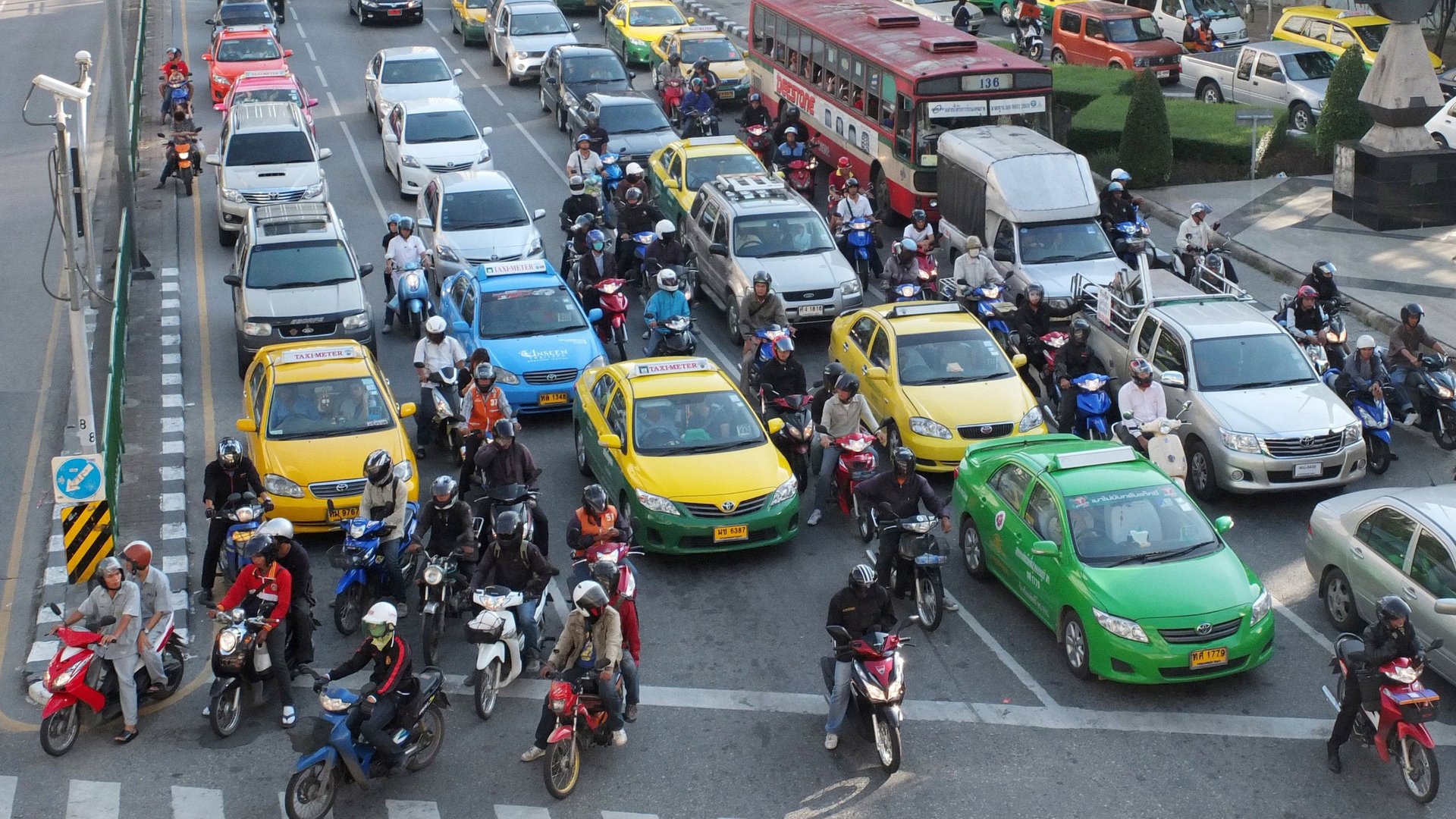A giant IPO, an election and a train in the sky could help solve Asia’s urban gridlock
Visitors to Bangkok quickly learn what native Bangkokians already know: Taking the elevated rapid transit system known as Skytrain is by far the easiest way to navigate the city’s traffic-choked streets.


Visitors to Bangkok quickly learn what native Bangkokians already know: Taking the elevated rapid transit system known as Skytrain is by far the easiest way to navigate the city’s traffic-choked streets.
Bangkok has some of the world’s worst gridlock, with 7.5 million cars on roadways designed to accommodate a mere 1.4 million, not to mention uncountable motorcycle taxis, scooters, and tuk-tuks. By contrast, the Skytrain is quick, clean, and pleasant—as long as you don’t mind the blaring of endless commercial jingles to tempt shoppers into the city’s shopping malls.
But the Skytrain is limited to a a 23.5 kilometer (14.6 mile) stretch of central Bangkok, which is why parent company BTS Group Holdings has begun preparing for a huge $1.5 billion initial public offering that will fund the expansion of Skytrain throughout the city.
The Wall Street Journal reports that BTS will list (paywall) the BTS Rail Mass Transit Growth Infrastructure Fund by mid-April, in what would be the second-largest Asian IPO of the year. The trust will purchase a stream of Skytrain transit-fare revenue, providing a stream of dividend payouts to trust holders. Since traffic is a problem in many of Asia’s rapidly growing cities, a successful IPO could prompt other regional transit operators to follow suit.
Skytrain’s future prospects will also be shaped by a crucial election on Sunday. Recent opinion polls show that former police-general Pongsapat Pongcharoen is poised to become Bangkok’s governor, aligning the city’s government with Thailand’s ruling Puea Thai Party. Since Bangkok’s annual municipal budget is a paltry $2 billion—less than half of the similarly sized Jakarta, and a tiny fraction of New York City’s $66 billion—the city is highly dependent on the national government for funding major infrastructure projects like Skytrain. Because he’s part of the ruling party, the city, and its transit network, should be getting a lot more government funding.